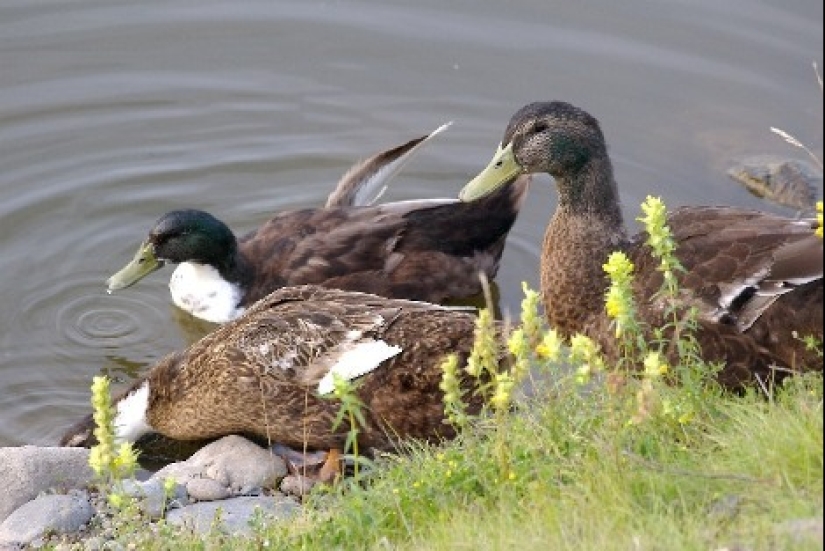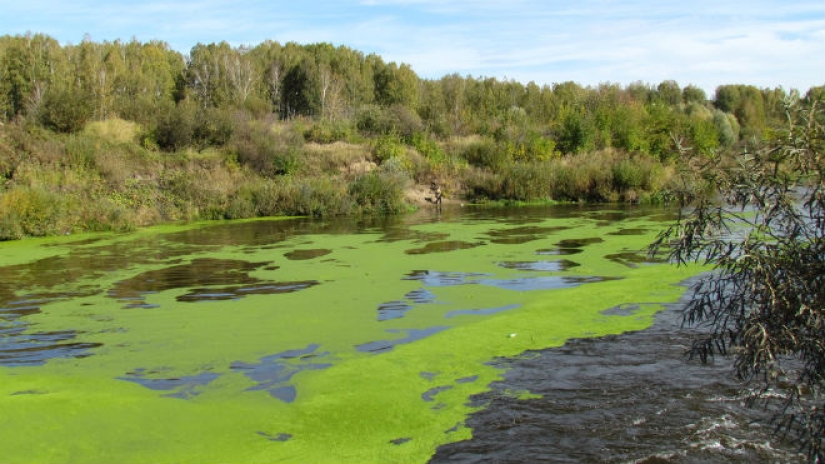Dangerous parasites and infections that lie in wait for bathers in our reservoirs
Categories: Health and Medicine
By Pictolic https://pictolic.com/article/dangerous-parasites-and-infections-that-lie-in-wait-for-bathers-in-our-reservoirs.htmlIt is well known that in the southern latitudes, swimming in reservoirs is fraught with many dangers. Poisonous insects, predatory reptiles and exotic parasites are a deadly danger for the careless bather. But do not relax, because there are enough serious threats to health in our fresh rivers.

In cities, the quality of water in rivers, ponds and lakes is monitored by the city administration. All kinds of analyses and measurements are regularly carried out to determine how suitable the reservoir is for swimming. If there are inconsistencies with sanitary standards, then signs immediately appear on the shore with a familiar inscription — "Bathing is prohibited".
Unfortunately, few people pay attention to these signs — it is enough for one person to enter the water, as a chain reaction occurs and everyone stops paying attention to the warnings. And in vain, because fresh water is much more favorable for the development of all kinds of microorganisms and parasites that are not averse to linking their lives with a person at all.

E. coli and other unpleasant bacteria that enter the body through the digestive tract along with water are the most common problem of our rivers and lakes. Once in the human body, these microorganisms cause diarrhea, vomiting, acute abdominal pain and even respiratory diseases and conjunctivitis.
It is not difficult to protect yourself from these troubles — it is enough to make sure that water does not get into the mouth and on the mucous membranes. Unfortunately, it is most difficult to explain these rules to children, so you need to relax with the kids only in places where the water quality is checked and bathing is allowed.

Cercariosis or "bather's itch" is popularly called duck fleas or lice. With this disease, the body of the bather, a couple of hours after resting by the water, is covered with strongly itchy red spots. The cause is the larva of a parasite-cercariae of the genus Trichobilharzia, the carrier of which can be both waterfowl and freshwater mollusks.
Fortunately, serious problems of infection with cercariosis rarely end. Parasites are simply not able to live in the human body and soon die. But the symptoms that accompany the infection are very unpleasant. In addition to itching, the patient is overcome by edema, high fever and insomnia. Everything ends in 5-15 days, depending on the person's immunity.
Only a full wetsuit that completely covers the skin from water can protect against the "itch of the bather". But if you avoid reservoirs where ducks and geese live, do not swim in algae and lubricate the body with a greasy cream before bathing, you can significantly reduce the likelihood of infection. Also, after bathing in the pond, doctors recommend taking a shower immediately and changing into clean and dry clothes.

Fungal infections (mycoses) feel great in the water of our rivers and spread without any problems in it. Sometimes people who have bathed in a pond become carriers — fungal spores are on their body and are easily washed off. You can also get infected by touching the places that the patient has come into contact with, or even just stepping on them with a bare foot.
The most common symptoms of fungal infections are redness and peeling of the skin, accompanied by itching. At the first signs of infection, you should immediately consult a doctor, since the patient can be a source of infection of the people around him.

In the last summer month, water begins to actively bloom in lakes and rivers. This process is caused by the high content of nutrients in the water, solar activity and an increase in temperature. The water begins to foam, acquires a green or brown color and an unpleasant smell, and is also covered with an oily film.
Oddly enough, there are those who want to swim in such water. But these brave people face serious problems. First of all, blooming water is an excellent environment for the reproduction of pathogenic microorganisms, including E. coli, and secondly, algae can become a dangerous allergen that will cause skin rashes, cough, rhinitis and fever.
Do not forget that in the summer we can not feel completely safe on land — ticks and the most common mosquitoes could cause a lot of health problems.
Keywords: Pond | Prohibition | Infection | Bathing | Parasites | Flowering
Post News ArticleRecent articles

It's high time to admit that this whole hipster idea has gone too far. The concept has become so popular that even restaurants have ...

There is a perception that people only use 10% of their brain potential. But the heroes of our review, apparently, found a way to ...
Related articles

Prohibition started in 1920, when the so-called the Volstead act came into force. The 18th amendment to the U.S. Constitution ...

Human history knows two trends: the first is craving for sex and the second — the struggle with sex. Why do so — let him think ...

Approaching not only the time of holidays and fun, but also time of the flu. Every year the number of survivors increases, but the ...

New Year's is a time to surprise and delight loved ones not only with gifts but also with a unique presentation of the holiday ...